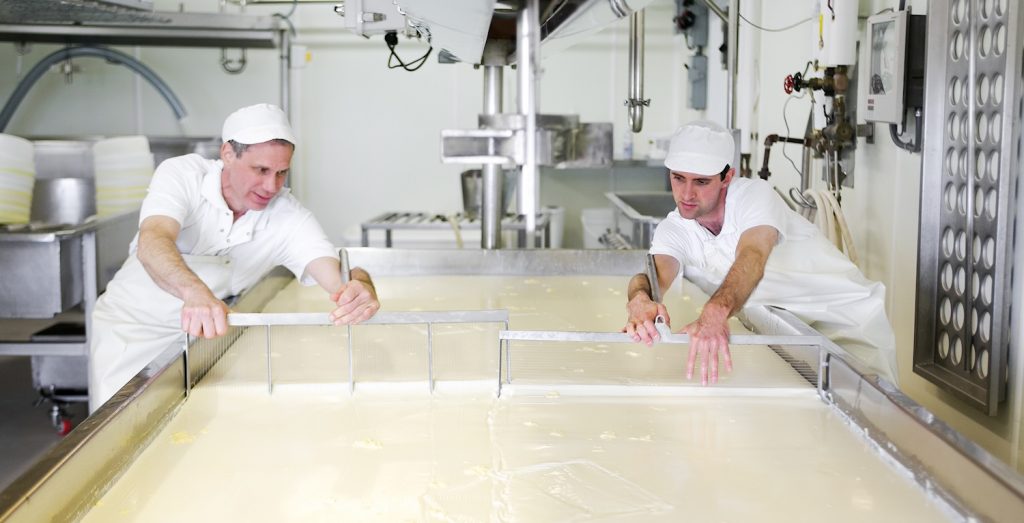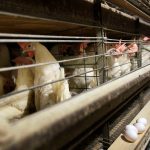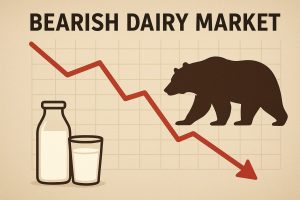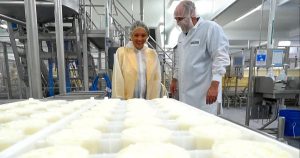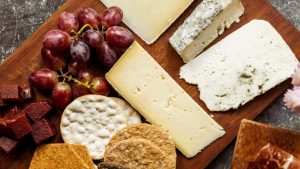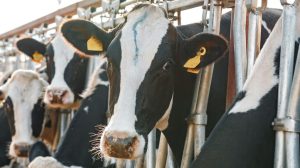
‘It really starts in the pasture from what those animals are eating,’ said Osseo cheesemaker.
On a ridge in southeastern Wisconsin, 150 cows are grazing under the hot summer sun. The grass the animals are munching on is doing more than just filling their bellies — it’s the magic ingredient for Wisconsin’s award-winning cheese.
“Rotational grazing is as old as rain,” said Andy Hatch, co-owner of Uplands Cheese, on WPR’s “Wisconsin Today.”
Hatch said his 300-acre farm produces its nationally recognized cheese, Pleasant Ridge Reserve, only during the grazing season. He said a pasture diet preserves the alpine-style’s taste and quality.
“The beautiful part of that system is that milk in this cheese coming off of that fresh pasture has such a special, vibrant, flavorful quality to it,” he said.
Hatch appeared earlier this year in an episode of “Top Chef: Wisconsin,” where contestants cooked with one of 13 cheese varieties, including his champion cheese.
“You could feel the excitement locally and then we could feel the nationwide attention shining down on us,” Hatch said. “It was a ton of fun.”
Excitement is exactly what farmer and cheesemaker Inga Witscher-Orth of Osseo is feeling after winning a national Good Food Award this year.
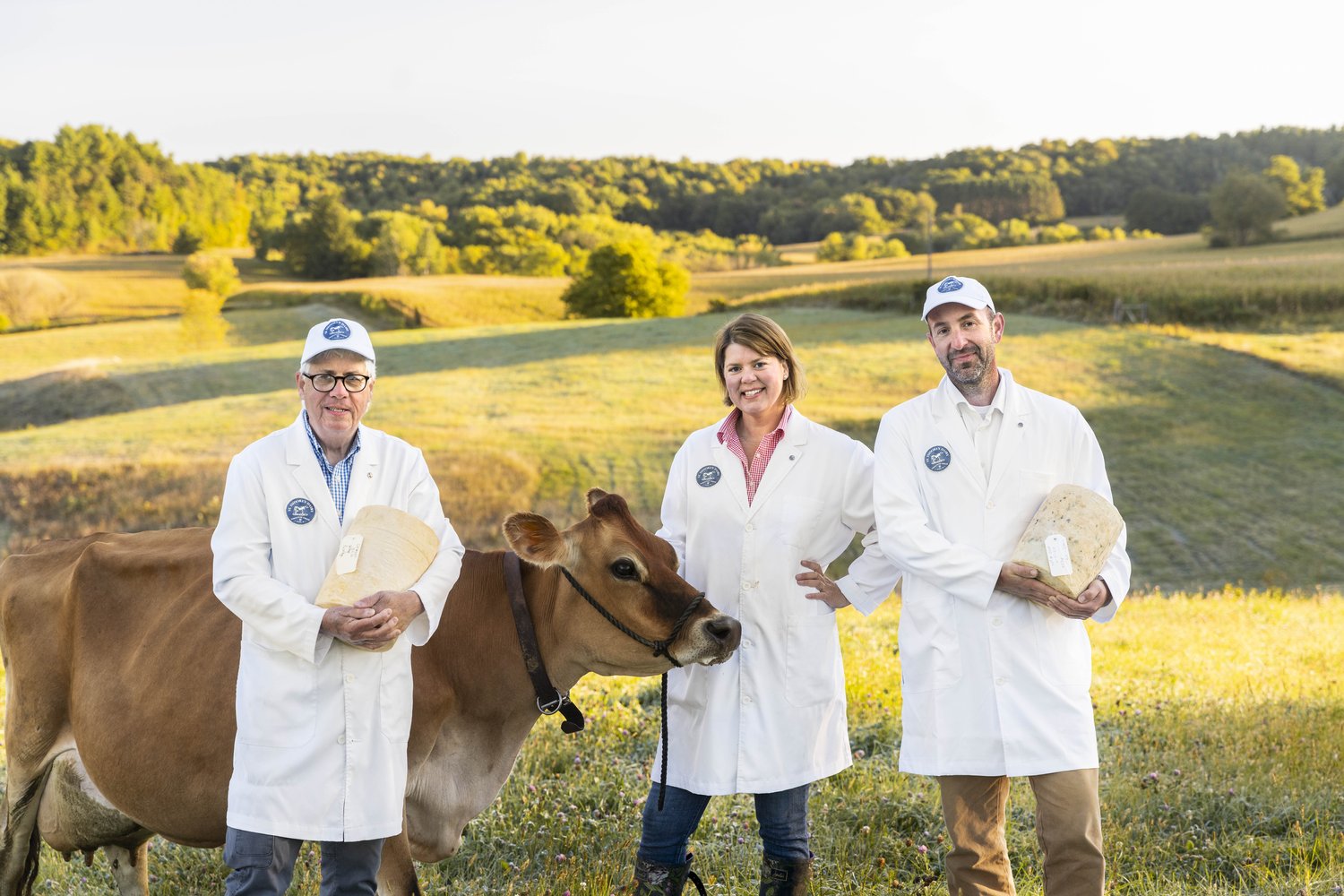
“As a farmer, my crop is my grass,” she said.
The owner of St. Isidore’s Farmstead Cheese in Osseo said her award-winning clothbound cheddar follows similar sustainable practices to Uplands Cheese.
She said her 5 jersey cows move to fresh pasture every 12 hours, with each producing about 60 pounds of milk per day.
“They go out there and harvest their own feed,” she said. “They spread their own manure. They’re also allowing beneficial insects to live in the pastures. There are certain birds, like grassland bird species, that can only nest in cow pasture.”
In Wisconsin, 1,200 licensed cheesemakers produce more than 600 varieties, types and styles of cheese, according to Dairy Farmers of Wisconsin. Witscher-Orth and Hatch both credit their grass-fed cows for producing award-winning cheese.
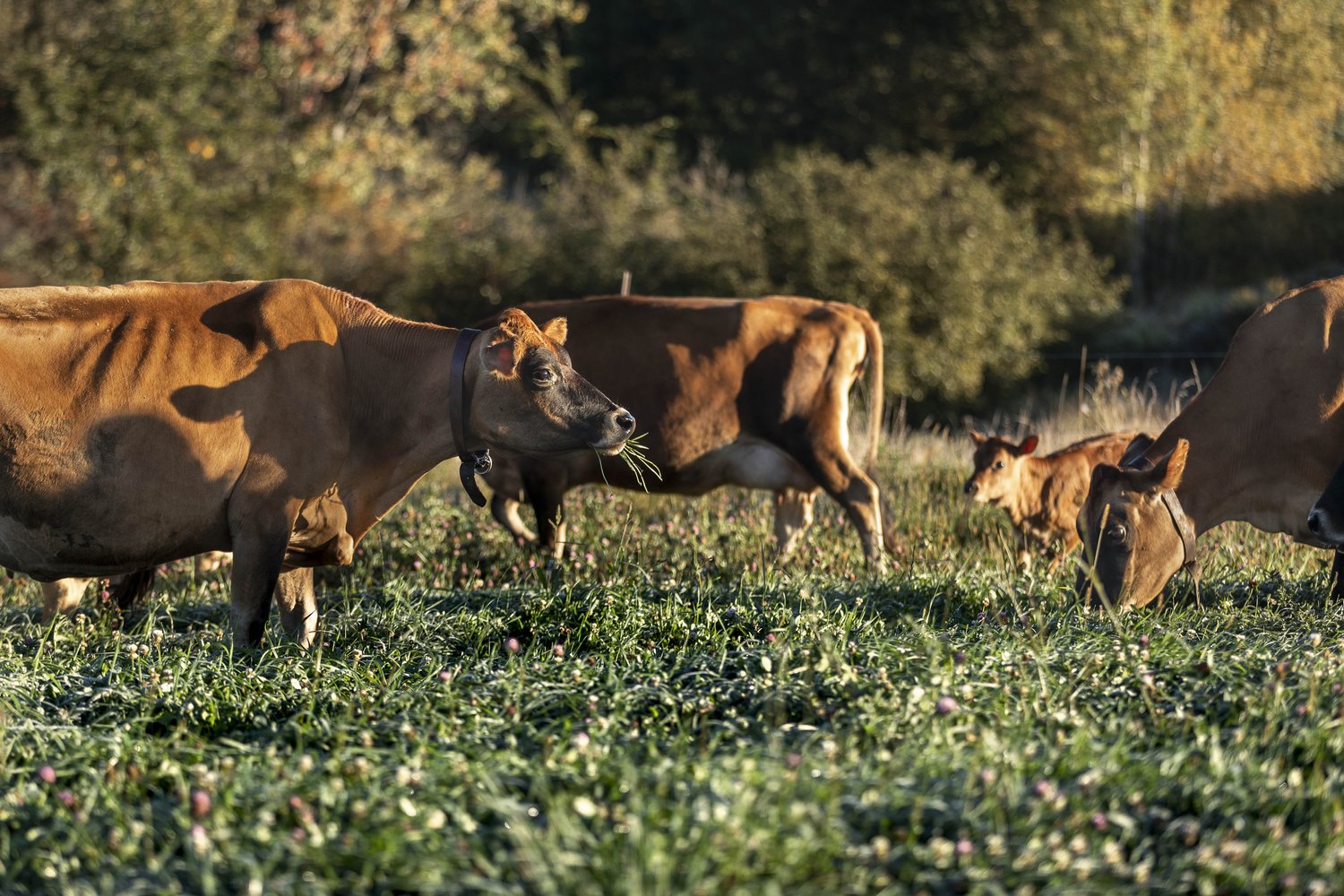
“A properly grass-fed cheese like Uplands or St. Isidore’s will have a beautiful richness to the color depending on what those animals are eating throughout the grazing season,” Witscher-Orth said.
Hatch added that this process of cheesemaking allows small producers to stay competitive against commercial farmers because it gives their cheeses a distinctive flavor.
“That style of cheesemaking will always give you something that tastes like the land and animals that it came from,” he said. “The opposite end of the spectrum are larger factories blending milk from hundreds of farms.”
According to Witscher-Orth, her 28-acre farm is one of the smallest licensed creameries in Wisconsin. She said the creamery opened in 2019 to secure finances for the farm.
“We are seeing a dairy crisis happening,” she said.
Witscher-Orth said she hopes to add five cows to her herd and make other types of cheeses.
In the meantime, Hatch and Witscher-Orth hope to be an example to other farmers who want to pursue pasture-raised farming.
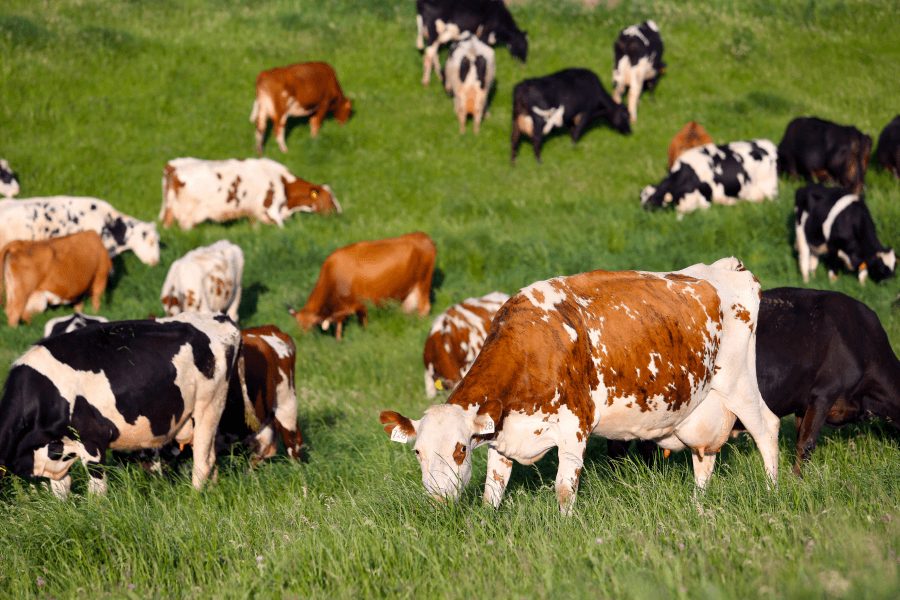
“I would find a place to get those cows out on pasture,” Witscher-Orth said. “As farmers, we always have to be thinking about what it’s costing us to feed those animals.”
Hatch said the Center for Dairy Research at the University of Wisconsin-Madison has a network of people who want to see small producers succeed.
“There are so many resources in Wisconsin, you just need to start introducing yourself and asking questions,” he said.
You can now read the most important #news on #eDairyNews #Whatsapp channels!!!
🇺🇸 eDairy News INGLÊS: https://whatsapp.com/channel/0029VaKsjzGDTkJyIN6hcP1K
